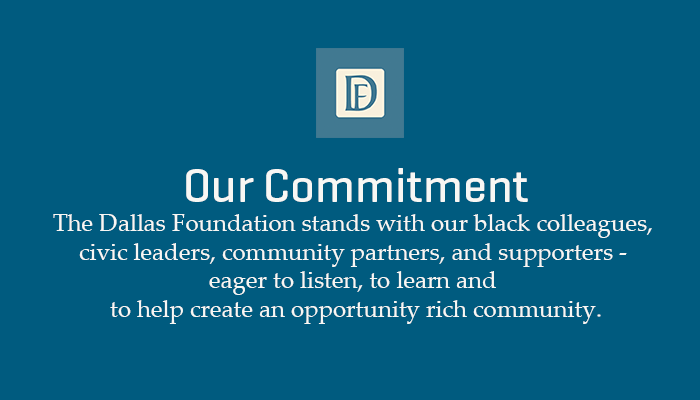Table of Contents
- Foundation Serves as Launching Pad for Community Agencies
- Leading Off
- Foundation Supports Major Exhibit
- Women’s Philanthropy Institute
- Better Together Fund Joins National Movement
- Pegasus Prize Marks 10th Year
- Pickard Scholar Brings Donor Legacy to Life
- New Governors and Staff Appointments of The Dallas Foundation
Foundation Serves as Launching Pad for Community Agencies
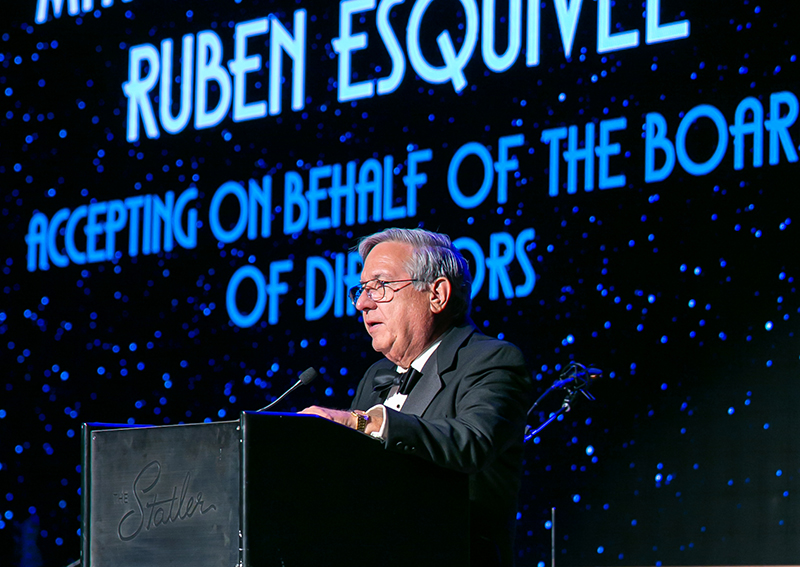 Some of Dallas’ most well-known and impactful organizations started their journey at The Dallas Foundation. Social Venture Partners-Dallas, bcWorkshop, Bachman Lake Together, Dallas Afterschool, Bonton Farms, Early Matters Dallas, TexProtects, Nurse-Family Partnership and NTARUPT are stellar examples of organizations nurtured at the Foundation, and today, they continue their work transforming our community. The Dallas Foundation cofounded some of these organizations, brought thriving ideas from other states to Dallas, and incubated others until they became independent agencies.
Some of Dallas’ most well-known and impactful organizations started their journey at The Dallas Foundation. Social Venture Partners-Dallas, bcWorkshop, Bachman Lake Together, Dallas Afterschool, Bonton Farms, Early Matters Dallas, TexProtects, Nurse-Family Partnership and NTARUPT are stellar examples of organizations nurtured at the Foundation, and today, they continue their work transforming our community. The Dallas Foundation cofounded some of these organizations, brought thriving ideas from other states to Dallas, and incubated others until they became independent agencies.
“We take a holistic view of what it means to be a community foundation. Sometimes that means proactively identifying community needs, like improving early childhood education, and leading the effort to address them. Other times, we advise and support social entrepreneurs who have developed innovative initiatives but need help launching them. Ultimately, we want to provide a home for good ideas that will positively impact individuals and families in Dallas,” said Dallas Foundation President and CEO Matthew Randazzo.
Like most of its community foundation counterparts, The Dallas Foundation is deeply rooted where it is located. And while the Foundation partners with donors across the country and awards grants that extend around the globe, its primary goal is helping the greater Dallas community thrive. And that goal can best be accomplished by collaborating with other individuals and organizations with the same level of passion and commitment to making Dallas a place where everyone can meet their full potential.
 |
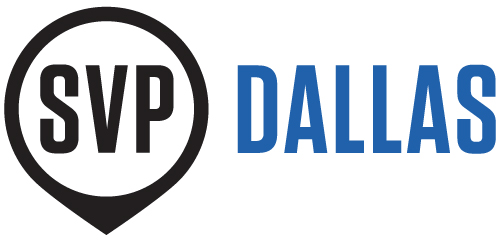 |
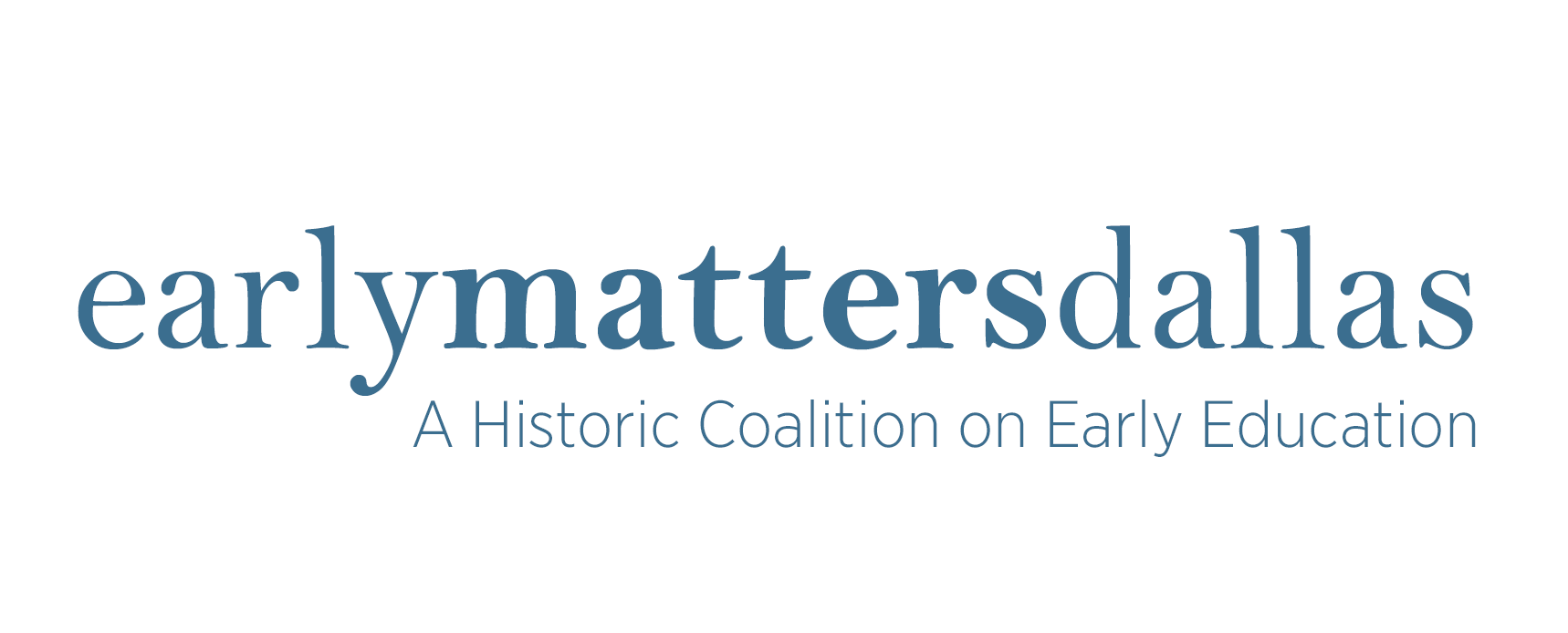 |
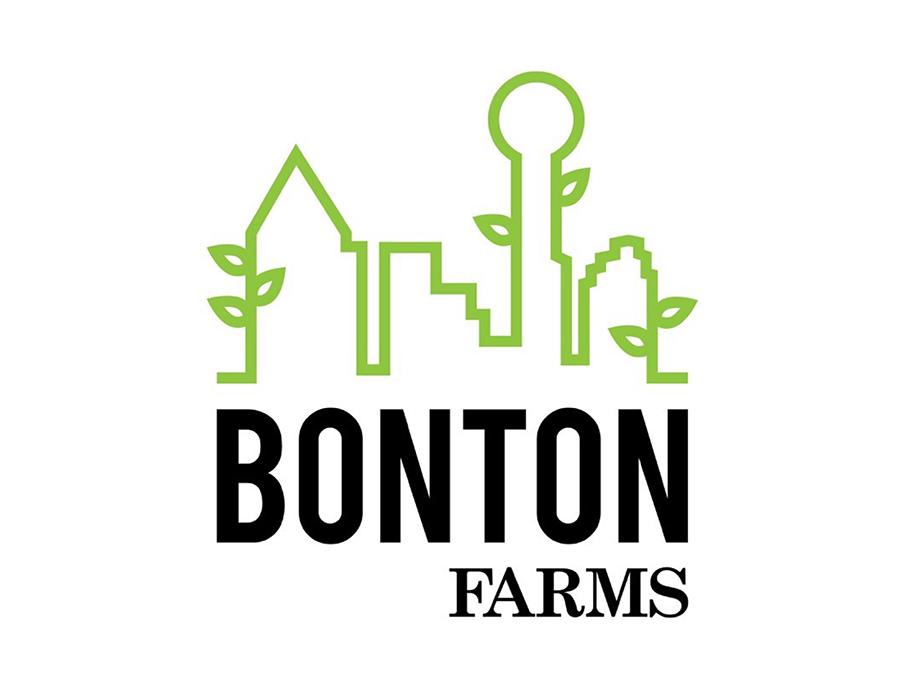 |
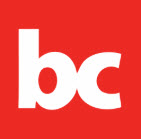 |
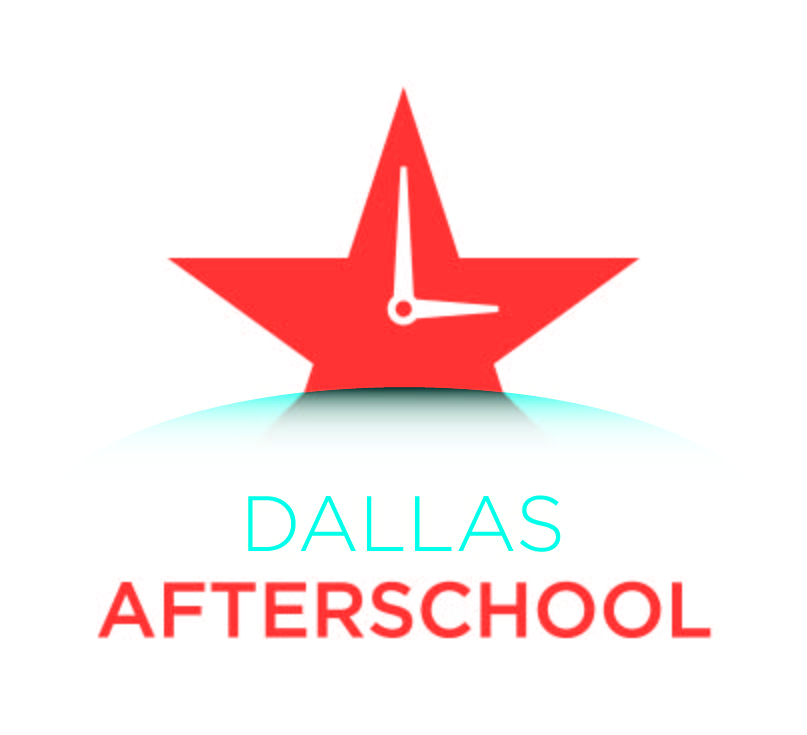 |
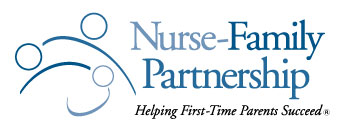 |
 |
Serving as the Catalyst
In 1999, The Dallas Foundation and local attorney Bob Wright began organizing what is now known as Social Venture Partners-Dallas (SVP-Dallas). Foundation staff had been researching a new approach to charitable giving that started on the West Coast and was modeled after venture capital investing. The Dallas Foundation provided background research, staff time and administrative support during SVP-Dallas’ early years – as well as a big dose of credibility.
Fast-forward 20 years, and SVP-Dallas is an independent organization with 200 partners in Dallas-Fort Worth and a host of its own initiatives making rippling changes across North Texas. Its annual conference, bigBang!, brings thought leaders, nonprofits, partners and community leaders together to focus on social innovation. Thirty-eight nonprofit agencies have completed the multi-year investment and mentorship cycle, including Family Gateway, Trinity River Mission, Reading Partners and The Samaritan Inn. The Dana Juett Residency guides individuals under age 30 through nine months of hands-on learning and experience in philanthropy, helping them develop a clearer sense of their personal values and how those values lead them to engage with the world. And last year, SVP-Dallas served as the backbone organization behind After8toEducate, a collaborative focused on serving and sheltering homeless teens in Dallas ISD. After8toEducate was The Dallas Foundation’s 2018 Pegasus Prize winner.
In the mid-2000s, The Dallas Foundation and Meadows Foundation began an effort to improve kindergarten readiness in Dallas. They launched the Zero to Five Funders Collaborative, bringing together foundations and donors to learn about brain development, early childhood education and welfare programs and local early childhood resources. The Collaborative’s resulting pilot project saturated the Bachman Lake neighborhood with high-quality parenting and early childhood education programs.
The Funders Collaborative ultimately led to the creation of two ongoing organizations: the Bachman Lake Together Family Center, which supports a strong foundation for neighborhood children to enter kindergarten ready to succeed, and Early Matters Dallas, a coalition of corporate leaders and philanthropists working to ensure that every child in Dallas has the developmental and educational foundation needed to succeed in school.
Standing Behind Budding Changemakers
The Dallas Foundation also serves as fiscal agent and informal advisor for newly formed groups that have not yet received IRS 501(c)(3) tax-exempt nonprofit status. The Foundation helps them prepare to govern themselves, achieve their missions and fulfill their legal duties.
“By the time a group transitions away from under the Foundation’s sponsorship, they will have everything needed to be successful as a nonprofit,” said Claudia DeMoss, who oversees The Dallas Foundation’s community funds. “We prepare and submit all IRS filings. We create online donation forms to embed on websites. We advise [agency founders] on best practices and resources they need to create a board, and templates for bylaws.”
That guidance has been indispensable for multiple agencies.
“We started as a fund of The Dallas Foundation, and our first employees were contractors,” said donor and social entrepreneur Janet Mockovciak, who cofounded Dallas Afterschool. “The people here were so helpful about helping us grow up.”
Twelve years after its formation, Dallas Afterschool is an independent agency that coaches, trains and assesses after-school professionals and programs at 180 sites across Dallas County. It has a staff of 18 and a website that allows parents to search for high-quality after-school and summer programs for their children.
Bonton Farms evolved from being one program of a larger ministry to a stand-alone entity, now housed as a fund of The Dallas Foundation. The experiment in urban farming, job skills training and neighborhood revitalization is growing more than food and now includes The Market, a store, café and gathering place run by and for residents of Bonton; two farms that furnish area restaurants with fresh produce, honey and goat milk; and a model for neighborhood revitalization with visitors from around the world.
“The Dallas Foundation wasn’t scared off when we were farming on property owned by the City,” founder Daron Babcock joked. “They adopted us. They gave us credibility before we’d been able to earn it.”
To learn about The Dallas Foundation’s community funds, please contact Claudia DeMoss at cdemoss@dallasfoundation.org.

In May, I crossed the one-year mark at The Dallas Foundation. Given this milestone, and all the work happening behind the scenes, it seems fitting to share with you some reflections and provide a preview of the Foundation’s plans to increase our impact.
This community’s gracious welcome included many deep conversations, offering insight into our donors’ and partners’ passions and priorities, and includes a strong foundation for our work tog
ether going forward. I, along with the entire team at the Foundation, realize that we are in the trusted position of serving as steward for our donor’s charitable resources and a partner on their philanthropic journeys. And we realize that in order to ensure the Foundation remains well-positioned to accomplish this, we have work to do.
We took a comprehensive look at our resources and infrastructure. Staff transitions, either to retirement or to pursue other career paths, provided opportunities for us to examine how departments are structured. We created and filled two new positions, a vice president of philanthropic partnerships and a vice president of finance and operations, and we have embarked upon a series of technology upgrades. Exemplary service to our donors and to this community remains a top priority, and these changes will help us build upon the Foundation’s legacy of service.
We also celebrated some successes along the way. Thanks to the leadership of our board of governors and the generosity of our donors, we quickly raised over $1 million to endow the Women’s Philanthropy Institute and rename it the Mary M. Jalonick Women’s Philanthropy Institute in honor of the Foundation’s longtime president. We leveraged co-investment from our donor partners and our Community Impact Fund to exceed the Accelerator Fund challenge grant opportunity. The fund’s grantmaking committee recently selected its first round of grantees, awarding $250,000 to strengthen the organizational capacity and impact of nonprofit organizations.
The Dallas Foundation is evolving our business model and focusing squarely on community impact and outcomes. Our strategic plan will enable the Foundation to assume an even more active role in providing expertise, leadership and catalytic investment to help all our donors and partners drive meaningful change in our community. Our board is partnering in new ways and leaning in on what’s next for one of our city’s most storied civic institutions.
We know that to best serve our donors and our community, we must build on our strengths while boldly embracing the opportunities before us. We are ready to dive into the Foundation’s next chapter and are energized by the possibilities.
With gratitude for your continued partnership,

Matthew Randazzo
President & CEO
Foundation Supports Major Exhibit Showcasing Woman Impressionist
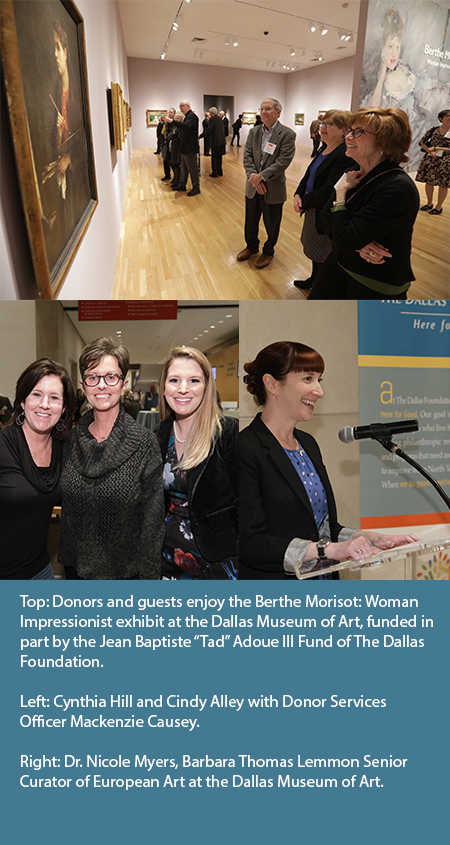 Berthe Morisot’s work embodies the essence of French Impressionist painting: short, bold brush strokes that suggest rather than define; a luminous quality of light, vivid colors; and real subjects in modern settings.
Berthe Morisot’s work embodies the essence of French Impressionist painting: short, bold brush strokes that suggest rather than define; a luminous quality of light, vivid colors; and real subjects in modern settings.
Dr. Nicole Myers, the Barbara Thomas Lemmon Senior Curator of European Art at the Dallas Museum of Art, noted that Morisot, a founding member of the Impressionist movement, exhibited in seven of the eight Impressionist shows in the late 19th century – more than any other artist except Camille Pissarro. Morisot often depicted domestic life and its characters, including her own daughter, and nannies and nursemaids, in her work. Morisot died at age 54 in 1895.
“She was incredibly well-known and celebrated during her lifetime,” said Myers. But Morisot’s untimely death from influenza cut short the artist’s career as it was developing.
Today, Morisot is less well-known than her contemporaries, such as Claude Monet or Pierre-Auguste Renoir.
A major exhibition of her paintings, funded partly by The Dallas Foundation, is helping correct that historical neglect.
The Dallas Foundation’s Jean Baptiste “Tad” Adoue III Fund was a major sponsor of the international show Berthe Morisot, Woman Impressionist. The Morisot show visited the Dallas Museum of Art from February to May 2019, before heading to its final stop in Paris.
The exhibition, co-organized by the Dallas Museum of Art, the Musée national des beaux-arts du Québec, the Barnes Foundation in Philadelphia and the Musée D’Orsay in Paris, is the first Morisot-focused show in the United States since 1987. It made only two stops: Philadelphia and Dallas. The 72 paintings in the exhibit come from 50 collections, more than half of them private.
“There’s a very good chance you won’t see them again in your lifetime,” Myers said. “Thanks to The Dallas Foundation, we were able to bring this incredibly ambitious project to life.”
Women’s Philanthropy Institute Has New Name and New Endowment
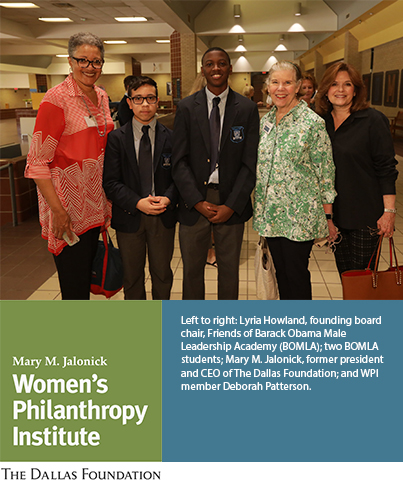 Thanks to the generosity of many donors, The Dallas Foundation’s Women’s Philanthropy Institute has a new name and a $1 million endowment. The Institute has been renamed the Mary M. Jalonick Women’s Philanthropy Institute in honor of the Foundation’s former president and CEO. Jalonick led The Dallas Foundation for three decades before her retirement in 2017. During that time, she served as a pioneer for women in philanthropy and remains a role model for women philanthropists and nonprofit executives.
Thanks to the generosity of many donors, The Dallas Foundation’s Women’s Philanthropy Institute has a new name and a $1 million endowment. The Institute has been renamed the Mary M. Jalonick Women’s Philanthropy Institute in honor of the Foundation’s former president and CEO. Jalonick led The Dallas Foundation for three decades before her retirement in 2017. During that time, she served as a pioneer for women in philanthropy and remains a role model for women philanthropists and nonprofit executives.
“We wanted to honor her tremendous legacy to the Foundation and the community, and this seemed like a perfect match,” said Dallas Foundation president and CEO Matthew Randazzo. “The endowment will allow us to increase the Institute’s grantmaking capacity and expand its programming.”
The Institute launched in 2008 after several months of planning by Dallas Foundation donors Dodee Crockett, Liz Minyard Lokey, Sarah Losinger and Jenny Mullen. They wanted to create a setting in which less experienced women philanthropists could learn from more seasoned funders. Other goals included providing opportunities for women to explore community issues, tour nonprofit agencies and develop the skills and knowledge needed to evaluate requests for grants or donations.
Twelve years later, it’s clear the women involved have enjoyed learning and giving together.
In the past five years, more than 200 women have participated in the program and given more than $15.5 million to the community through the group’s grants or as individuals. The Institute has visited dozens of nonprofit organizations throughout Dallas County and focused on a wide variety of issues, from teen homelessness to brain health research.
As of May 2019, the group had grown to 73 members and had already visited Bonton Farms and Educational First Steps. It will tour the Dallas Holocaust and Human Rights Museum and Attitudes & Attire this fall. Informal “lunch-and-learns” led by Chief Impact Officer Helen Holman follow each site visit and allow participants to review agency financial statements and ask detailed questions.
Women are welcome to join the Mary M. Jalonick Women’s Philanthropy Institute at any time. Membership is $100 annually, which covers the cost of lunches and occasional transportation, and members are required to donate at least $500 to the group’s year-end grant fund. For more information, please contact Gift Development Officer Kim Montez at kmontez@dallasfoundation.org.
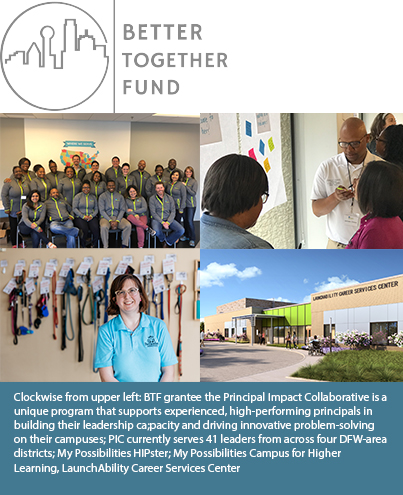 Dallas’ Better Together Fund (BTF), launched as a pilot program in June 2017, encourages nonprofits to consider formal, strategic collaborations to maximize their impact. The Fund recently finished its eighth grant cycle, bringing the total number of grants awarded to 62 and its total financial commitments to $3.2 million. The Better Together Fund offers four types of grants to support different stages of collaboration: readiness assessment, feasibility, planning and implementation.
Dallas’ Better Together Fund (BTF), launched as a pilot program in June 2017, encourages nonprofits to consider formal, strategic collaborations to maximize their impact. The Fund recently finished its eighth grant cycle, bringing the total number of grants awarded to 62 and its total financial commitments to $3.2 million. The Better Together Fund offers four types of grants to support different stages of collaboration: readiness assessment, feasibility, planning and implementation.
“The goal is not to force agencies to merge,” emphasized Helen Holman, a member of the BTF steering committee and The Dallas Foundation’s senior vice president and chief impact officer. “The goal is to support agencies that want to explore collaborations that could make them more efficient and effective. The goal is to strengthen the local nonprofit sector.”
With funding and leadership from The Dallas Foundation, Lyda Hill Philanthropies, Meadows Foundation, United Way of Metropolitan Dallas and Hoblitzelle Foundation, BTF has already helped dozens of nonprofits analyze their operations and possible collaborative projects. BTF catalyzed a successful merger of two agencies, My Possibilities and LaunchAbility, which serve adults with intellectual and developmental disabilities. It also supported the Principal Impact Collaborative (PIC), a fellowship program created by multiple school districts and nonprofits as it searched for a permanent home. In March, PIC became a program of the School of Education at the University of North Texas at Dallas.
BTF is also practicing what it preaches, collaborating with the handful of similar funds around the country to develop standardized terminology and data collection for the emerging field, said Margaret Black, director at Lyda Hill Philanthropies/LH Capital, Inc.
“Every [collaborative] fund operates a little differently, but we all have tools for surveying clients,” Black said. “The purpose of developing a shared evaluation framework is to test the theory of change, track additional resources for the field and build the larger field based on what we’ve learned.”
For information about the Better Together Fund, please visit bettertogetherfund.org.
Pegasus Prize Marks 10 Year of New Approaches to Community Issues
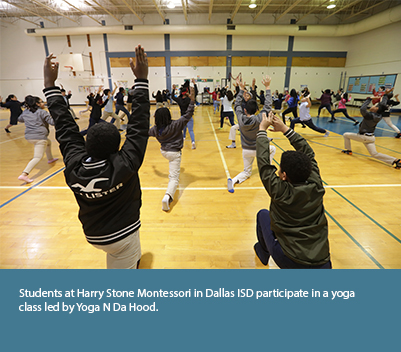 Yoga N Da Hood (YNDH), which brings the healing, calming powers of yoga to underserved children, won The Dallas Foundation’s ninth annual Pegasus Prize in March. The group’s founder, Ebony Smith, projected that the $50,000 prize will allow the organization to reach 3,000 kids – ten times the number it currently serves. YNDH’s Mindful Movement program helps children develop coping skills that allow them to focus better in the classroom and respond compassionately to peers.
Yoga N Da Hood (YNDH), which brings the healing, calming powers of yoga to underserved children, won The Dallas Foundation’s ninth annual Pegasus Prize in March. The group’s founder, Ebony Smith, projected that the $50,000 prize will allow the organization to reach 3,000 kids – ten times the number it currently serves. YNDH’s Mindful Movement program helps children develop coping skills that allow them to focus better in the classroom and respond compassionately to peers.
The Dallas Foundation created the Pegasus grants in 2010 to reward agencies that offer innovative approaches to long-term community challenges. A volunteer selection committee, which includes Dallas Foundation governors, donors and civic leaders, reviews applications, visits agencies and selects a winner.
Since its creation, the Pegasus committee has awarded more than $400,000 to 11 agencies. The grants have helped nonprofits test and evaluate new strategies or revise programs to improve their efficacy.
For more information about the Pegasus Prize and past winners, please visit dallasfoundation.org.
Pickard Scholar Brings Donors’ Legacy to Life
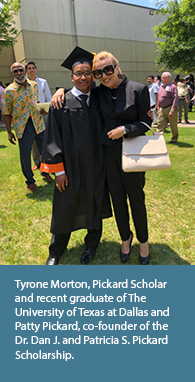 Four years ago, the Pickard Scholarship Fund Committee at The Dallas Foundation read an application from a young man named Tyrone Morton. Tyrone was raised by a single mother in the city of Dallas. Tyrone’s mother has always made education a priority in life, and the two knew that education was the only way to end the cycle of poverty in their family. Throughout high school, Tyrone maintained highly competitive grades, especially in math and science, all while facing extreme adversities.
Four years ago, the Pickard Scholarship Fund Committee at The Dallas Foundation read an application from a young man named Tyrone Morton. Tyrone was raised by a single mother in the city of Dallas. Tyrone’s mother has always made education a priority in life, and the two knew that education was the only way to end the cycle of poverty in their family. Throughout high school, Tyrone maintained highly competitive grades, especially in math and science, all while facing extreme adversities.
The Dr. Dan J. and Patricia S. Pickard Scholarship was established in 2004 to assist male African American graduates of Dallas County high schools. During the years he ran his clinic near Fair Park in Dallas, Dan, an optometrist, witnessed firsthand the lack of higher education in his clients’ lives, particularly the young men. Before his death from a rare, terminal neurodegenerative disease, the couple approached The Dallas Foundation to establish the scholarship fund. Dan lived long enough to help select the first recipient, who later graduated from Texas Tech University.
Patty met Tyrone in 2015 when he started college at the University of Texas at Dallas (UTD). Over the next eight semesters, he consistently turned in impressive transcripts to the Pickard Scholarship Committee as he excelled through UTD’s mechanical engineering program. In May, Tyrone graduated, and he invited Patty to be one of his guests at the ceremony.
“This scholarship is definitely different. Patty is very involved, motivating me and listening when I need someone to talk to,” said Tyrone. “The scholarship is more of a family.”
Tyrone recently began his career at Lockheed Martin Aeronautics. Patty could not be more pleased that Tyrone is fulfilling the legacy of her late husband that was envisioned when they established their scholarship fund with The Dallas Foundation.
“Tyrone is an extra special young man. His is a story of perseverance, and I’m honored that I’ve been able to witness his journey.”
Once he’s settled into his new job, Tyrone will be joining the Pickard Scholarship Fund Committee so that he can give back and support other students like himself.
New Governors and Staff Appointments
This spring, The Dallas Foundation welcomed seven new members to its board of governors:
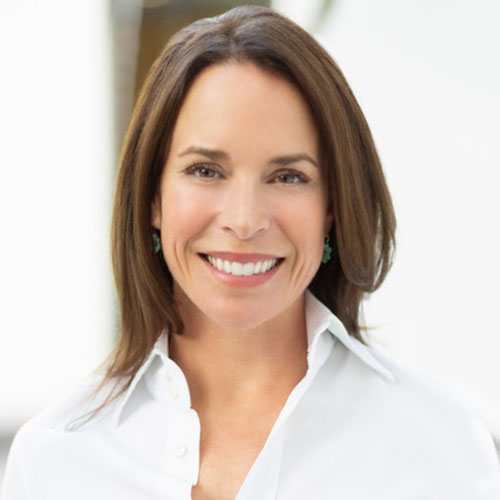 Catherine Rose, president of the Dallas Museum of Art’s board of trustees. Rose also serves as chair of Teach For America DFW’s advisory board and on the executive committee for Southwestern Medical Foundation. She is a member of the Dallas Assembly and past chair for The Lamplighter School. Catherine Rose, president of the Dallas Museum of Art’s board of trustees. Rose also serves as chair of Teach For America DFW’s advisory board and on the executive committee for Southwestern Medical Foundation. She is a member of the Dallas Assembly and past chair for The Lamplighter School.
|
|
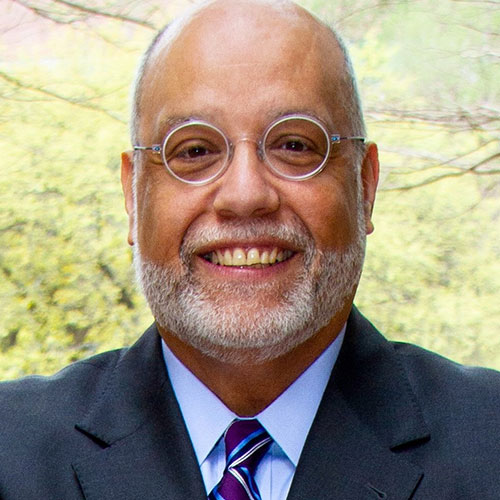 Chris Luna, vice president of legal affairs at Metro by T-Mobile, a brand of T-Mobile US, Inc. Luna is past president of The Dallas Assembly and previously served on the Dallas City Council, Garland Utility Advisory Board, and Parkland Health and Hospital System Board. He is currently on the board of directors for the Richardson Chamber of Commerce and the Dallas Zoological Society. Chris Luna, vice president of legal affairs at Metro by T-Mobile, a brand of T-Mobile US, Inc. Luna is past president of The Dallas Assembly and previously served on the Dallas City Council, Garland Utility Advisory Board, and Parkland Health and Hospital System Board. He is currently on the board of directors for the Richardson Chamber of Commerce and the Dallas Zoological Society.
|
|
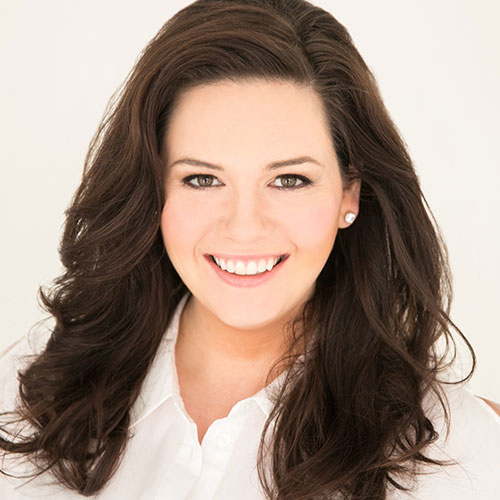 Elizabeth Carlock Phillips, social entrepreneur and head of Phillips Philanthropies and the Phillips Foundation, where she has launched its impact investing program and an online platform for philanthropic education and tracking. She is also the founding president of Echelon, the national young adult auxiliary of The Salvation Army. Elizabeth Carlock Phillips, social entrepreneur and head of Phillips Philanthropies and the Phillips Foundation, where she has launched its impact investing program and an online platform for philanthropic education and tracking. She is also the founding president of Echelon, the national young adult auxiliary of The Salvation Army.
|
|
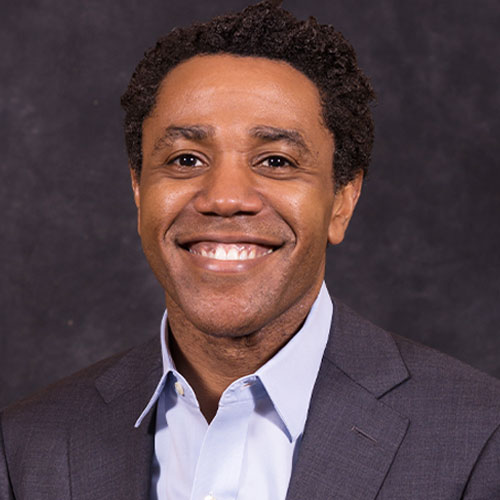 Jeremy Smith, co-president and executive director at the Rainwater Charitable Foundation, which is dedicated to improving education for children in underserved communities, as well as medical research in the field of neuroscience. He also serves as a board member for Reading Partners, Teach for America DFW, and the Commit! Partnership. Jeremy Smith, co-president and executive director at the Rainwater Charitable Foundation, which is dedicated to improving education for children in underserved communities, as well as medical research in the field of neuroscience. He also serves as a board member for Reading Partners, Teach for America DFW, and the Commit! Partnership.
|
|
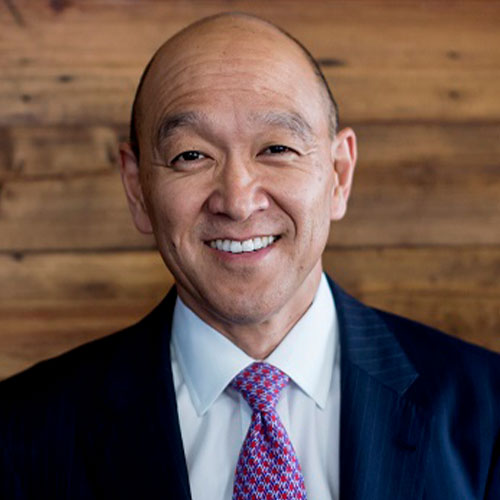 Mark Okada, co-founder and chief investment officer of Highland Capital Management. He is chairman of the board of directors for Education Is Freedom and is a board member for the Japanese Evangelical Missionary Society. He is also on the executive board of Dedman College Humanities and Sciences at Southern Methodist University. Mark Okada, co-founder and chief investment officer of Highland Capital Management. He is chairman of the board of directors for Education Is Freedom and is a board member for the Japanese Evangelical Missionary Society. He is also on the executive board of Dedman College Humanities and Sciences at Southern Methodist University.
|
|
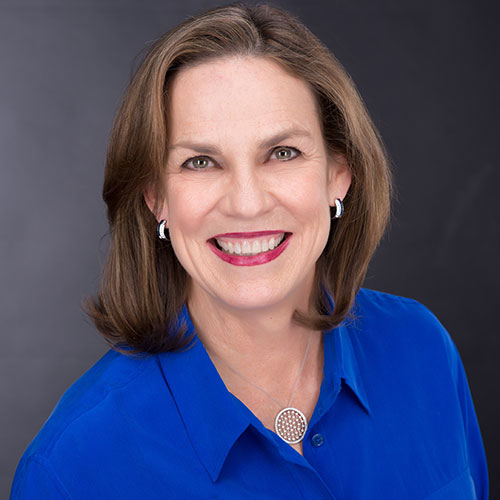 Patsy Woods Martin, founder, board member and the former chief executive director of I Live Here, I Give Here, a collaboration between individual philanthropists, nonprofit organizations, family foundations, local businesses and religious organizations to create impact for Austin, Texas. She was previously the vice president of resource development for United Way Capital Area. Patsy Woods Martin, founder, board member and the former chief executive director of I Live Here, I Give Here, a collaboration between individual philanthropists, nonprofit organizations, family foundations, local businesses and religious organizations to create impact for Austin, Texas. She was previously the vice president of resource development for United Way Capital Area.
|
|
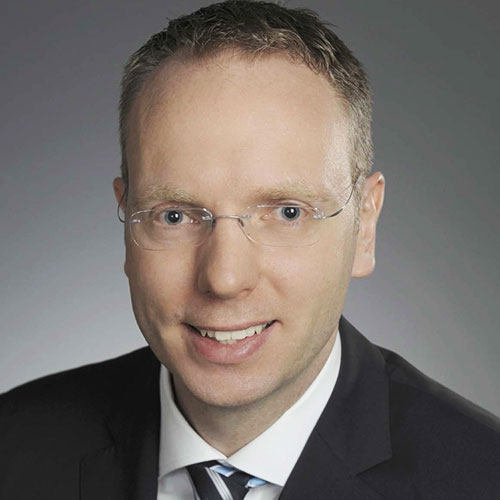 Steffen Fuchs, senior partner in the Dallas office of McKinsey & Company. Since joining the firm in 2006, he has worked with clients on strategic and operational transformation topics in a variety of industries and is the leader of McKinsey’s global Capital Productivity & Infrastructure Practice. He also serves on the Dallas Citizens Council. Steffen Fuchs, senior partner in the Dallas office of McKinsey & Company. Since joining the firm in 2006, he has worked with clients on strategic and operational transformation topics in a variety of industries and is the leader of McKinsey’s global Capital Productivity & Infrastructure Practice. He also serves on the Dallas Citizens Council.
|
|
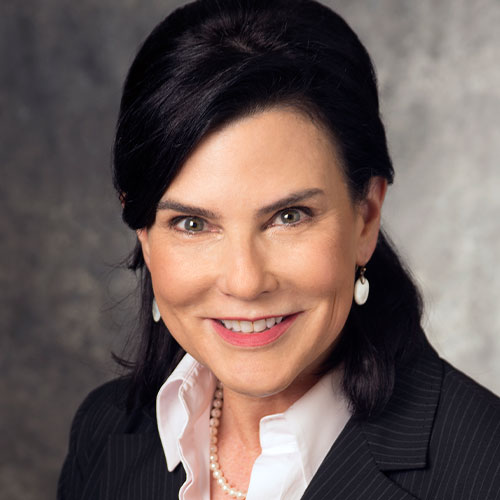 Jeanne Whitman Bobbitt, a management and leadership consultant, has been elected chair of the board. She previously served as the Eugene McDermott Headmistress of the Hockaday School of Dallas and, before that, vice president for development and external affairs at Southern Methodist University. Jeanne Whitman Bobbitt, a management and leadership consultant, has been elected chair of the board. She previously served as the Eugene McDermott Headmistress of the Hockaday School of Dallas and, before that, vice president for development and external affairs at Southern Methodist University. |


